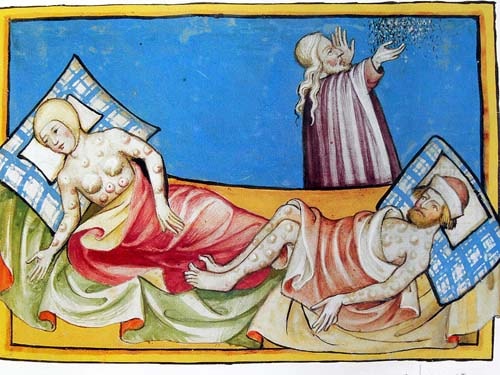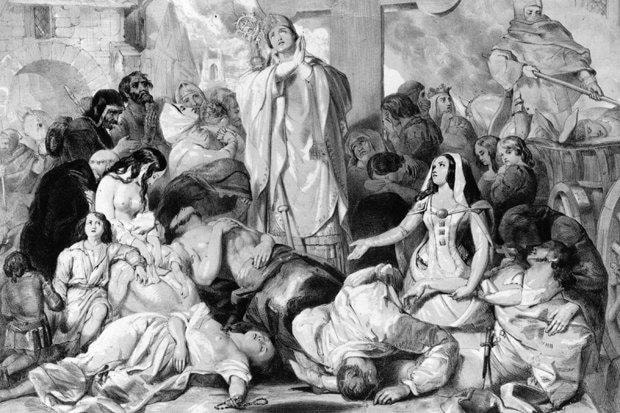Hot: Is the "Black Death" about to return to massacre humanity?
The Black Death, which broke out in a short period of time in the 14th century, killed tens of millions of people, equivalent to 60% of the entire population of Europe. A leading scientist warns that if the Earth continues to warm as it is, the deadly pandemic could return to haunt humanity.
“Black Death”

When medicine was not yet developed, people who contracted the plague at that time did not survive. Photo: Getty.
The Black Death was a disease caused by the bacterium Yersinia pestis and spread by rodents living in large colonies. Such an area was called a “focal point.” Human epidemics began when rodents in human dwellings, usually black rats, became infected.
The “Black Death” spread through Europe between 1346 and 1353. However, the creepy name only came into being a few centuries later. The Black Death (atra mors) is actually an ancient Greek phrase that was used in classical Latin. It was originally used in poetry to denote the darkness and fear associated with death, not just a specific disease. |
Symptoms of the disease include swollen lymph nodes all over the body. When the blood vessels in the lymph nodes rupture, the blood dries and turns into black clots that block blood circulation. Internal bleeding also occurs in internal organs such as the liver and lungs and can lead to death. The disease can be transmitted from person to person through the respiratory tract and respiratory fluids.
At the height of the pandemic, many people on the streets used perfume to avoid the smell of the dead. The disease spread so quickly that corpses littered the streets while others died at home, unnoticed until the smell wafted to their neighbors.
It can be said that the “Black Death” was a terrible pandemic for the world and especially Europe. It is estimated that a total of 200 million people died from this disease, spreading from Europe to Asia. In England alone, half of the population did not survive.
Plagues continued to spread for the next 300 years, including the great plague in London in 1665, which killed a quarter of the population. Despite its devastating effects, the plague did not last forever.
There are many reasons for this, such as the decline in rodent populations or the successful development of a vaccine by Russian-Jewish physician Vladimir Havkin in the 19th century.
Pandemic returns?

The Black Death pandemic devastated Europe, completely changing the way of life and culture of the old continent afterwards. Photo: Getty.
According to Daily Star Online, quoting Peter Frankopan, professor of world history at the prestigious Oxford University, global warming causing ice to melt will lead to dangerous pandemics such as the "Black Death".
Specifically, Mr. Frankopan said that when permafrost melts, bacteria and pathogens will be released into the environment after being buried for thousands of years. In addition, rising global temperatures will create an ideal infection environment for plague bacteria to develop.
“In the 1340s, a 1.5-degree Celsius rise in global temperature turned a tiny bacterium into the Black Death pandemic,” explains Frankopan, explaining that the bubonic plague was the last global warming pandemic humanity experienced.
According to Daily Star Online, Mr. Frankopan's warning is believed to be well-founded when previously, a series of leading climate scientists jointly announced that humans only have 12 years left to prevent the Earth's temperature from warming by more than 1.5 degrees Celsius. In a report sent to the United Nations, these scientists affirmed that rising temperatures will cause floods, droughts, extreme weather, etc., pushing hundreds of millions of people into poverty.

